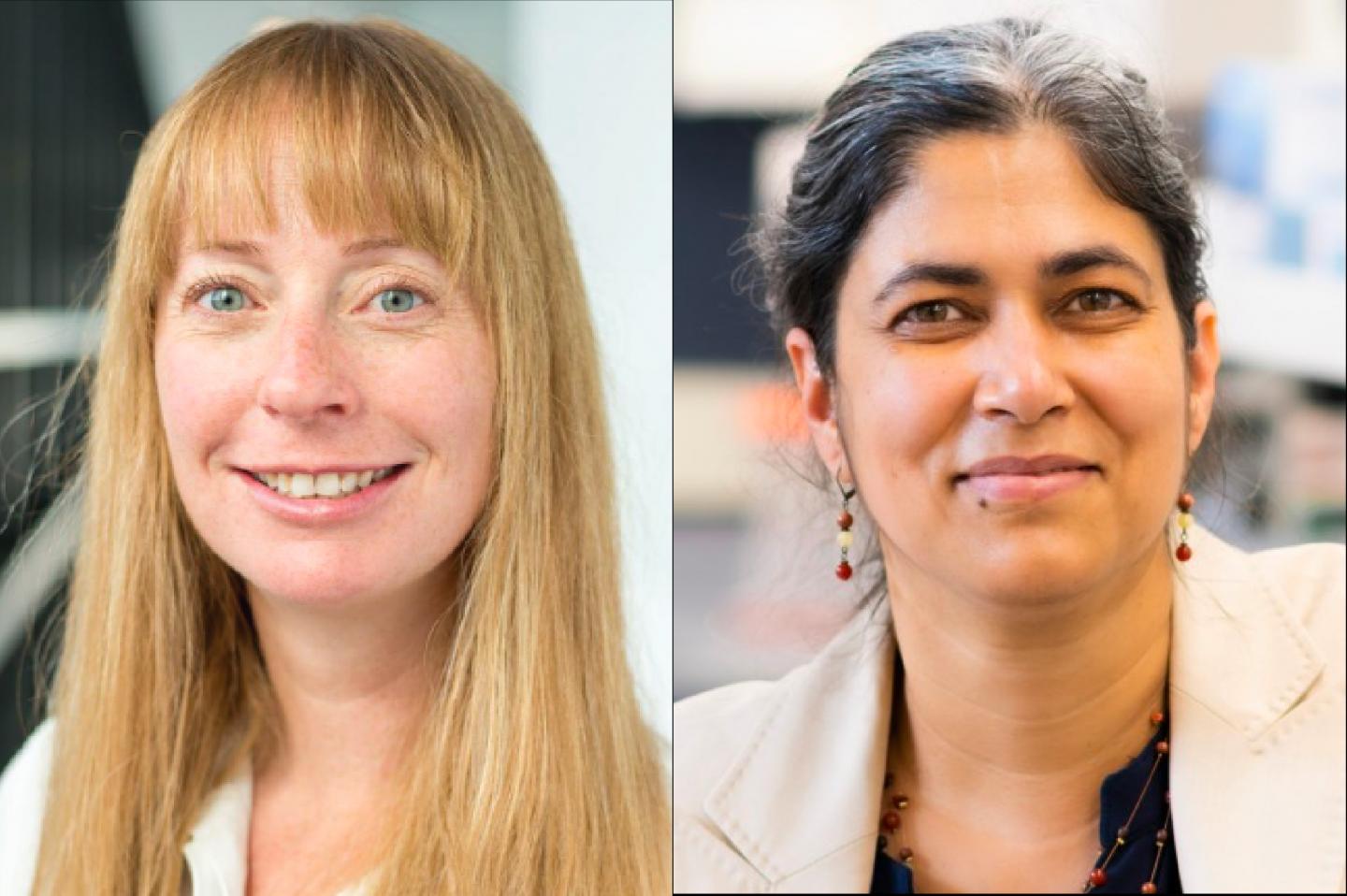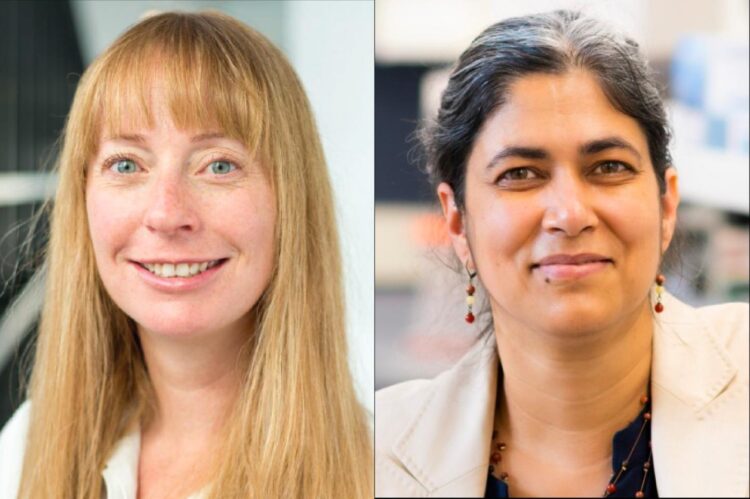GlycoNet scientists are looking for clues in sugars to develop early diagnostics for breast cancer

Credit: GlycoNet
Early diagnosis of breast cancer is one of the holy grails in cancer medicine and critical for improving overall survival. Currently, mammography is commonly used for breast cancer screening, but it is not always reliable. As a complement to imaging approaches, liquid biopsies–tests based on detecting materials shed by tumors into the bloodstream–represents a promising method.
A team of GlycoNet researchers including Dr. Karla Williams, Canada Research Chair in Oncology and Assistant Professor from the University of British Columbia, and Dr. Lara Mahal, Canada Excellence Research Chair in Glycomics and Professor from the University of Alberta, are taking a deep dive into liquid biopsies. Knowing that certain sugars are present in higher abundance on breast cancer cells than normal cells, the team is identifying patterns of different sugars on small fragments shed by breast cancer cells termed extracellular vesicles.
“Women have around a 50% life-time risk of getting a false-positive result by mammography, meaning that they are suspected of having breast cancer, but they actually don’t have it. This can lead to significant psychological stress and economic impact on the healthcare system,” says Williams. “And about 20% have a false-negative from mammography- this is a problem, because we are missing these cancers and risking these patients’ lives as the breast cancer progresses without their knowledge.”
A different type of malignment messenger
As of now, using liquid biopsies as a screening tool to support the detection of breast cancer is still experimental. Much of the efforts on liquid biopsy development has focused on the detection of cancer-associated nucleic acids or proteins released by cancer cells into the blood. The project by GlycoNet researchers, however, takes a different angle – glycans.
Glycans are sugar-based polymers that coat cells and decorate most proteins. They are a crucial part of a cell’s identity, helping it communicate with other cells and with the external environment. Glycans are also essential for biological processes such as immune regulations, which are directly related to diseases like cancer, autoimmune diseases and countless other afflictions. Despite their ubiquity and importance, glycans remain among the most enigmatic biological players.
As a cancer researcher, Williams found that certain glycans are highly expressed on the surface of cancer cells, whereas these glycans are often not observed in normal cells. This forms an interesting pattern, or signature, for malignancies.
Using glycomics screening tool to tease out the clues
This collaborative project requires expertise from both Williams lab and Mahal lab. Mahal recalled that the collaboration came into place naturally at a conference.
“When I saw Karla’s presentation in the conference about her work on metastatic cancer, I came to her to chat further,” says Mahal, an expert in lectin microarray and a pioneer in glycan trafficking in extracellular vesicles. “I suggested that we could work together on a project, combing our large-scale lectin microarray and her expertise in breast cancer.”
“Karla’s lab would extract the cell fragments -the extracellular vesicles- from the blood of healthy women and women with breast cancer. Then by labeling the fragments we can look at the glycans on these fragments in our lab,” Mahal explains. These samples are tested on Mahal’s lectin microarray, which is a panel of predefined glycan-binding proteins immobilized on a glass slide. If there is a binding interaction between a glycan from the breast cancer sample and the glycan-binding protein on the microarray, there will be a signal corresponding to the binding event. By comparing the binding patterns between breast cancer and non-cancerous samples, the researchers would be able to tell which glycans are changing in breast cancer.
Next steps
Williams says that they envision such liquid biopsy could one day become a complement with initial mammography screening to improve the accuracy of detection.
“We are now at the step of conducting basic research that we believe will lead to the next diagnostic,” says Mahal. “The next step, once we determine the binding profiles of glycans from breast cancer, we will focus our efforts on specific glycans associated with breast cancer and their binding partners, i.e. glycan-binding proteins, to figure out what exactly is happening at the molecular level.”
“There are different approaches we could take to develop a diagnostic once we gather all the data that shows which glycans are potential biomarkers,” says Williams. “We expect to be able to determine which combination of biomarkers may be more definitive and effective in diagnosing early breast cancer and then we can look at different technologies that will support detection of these sugar markers in an individual’s blood.”
In Canada, on average, 75 women are diagnosed with breast cancer every day, and it is estimated that 14 will die. The chances of long-term survival are high for women whose breast cancer is caught early. The five-year survival rate of women diagnosed with early localized breast cancer is 93%, but the rate drops dramatically to 72% when the cancer is diagnosed at a later stage. Catching breast cancer at its earliest stage will support the best long-term outcomes for patients.
###
This project is funded by GlycoNet, Susan G. Komen Breast Cancer Foundation, and the Michael Smith Foundation for Health Research.
Media Contact
Ali Chou
[email protected]
Original Source
https:/





